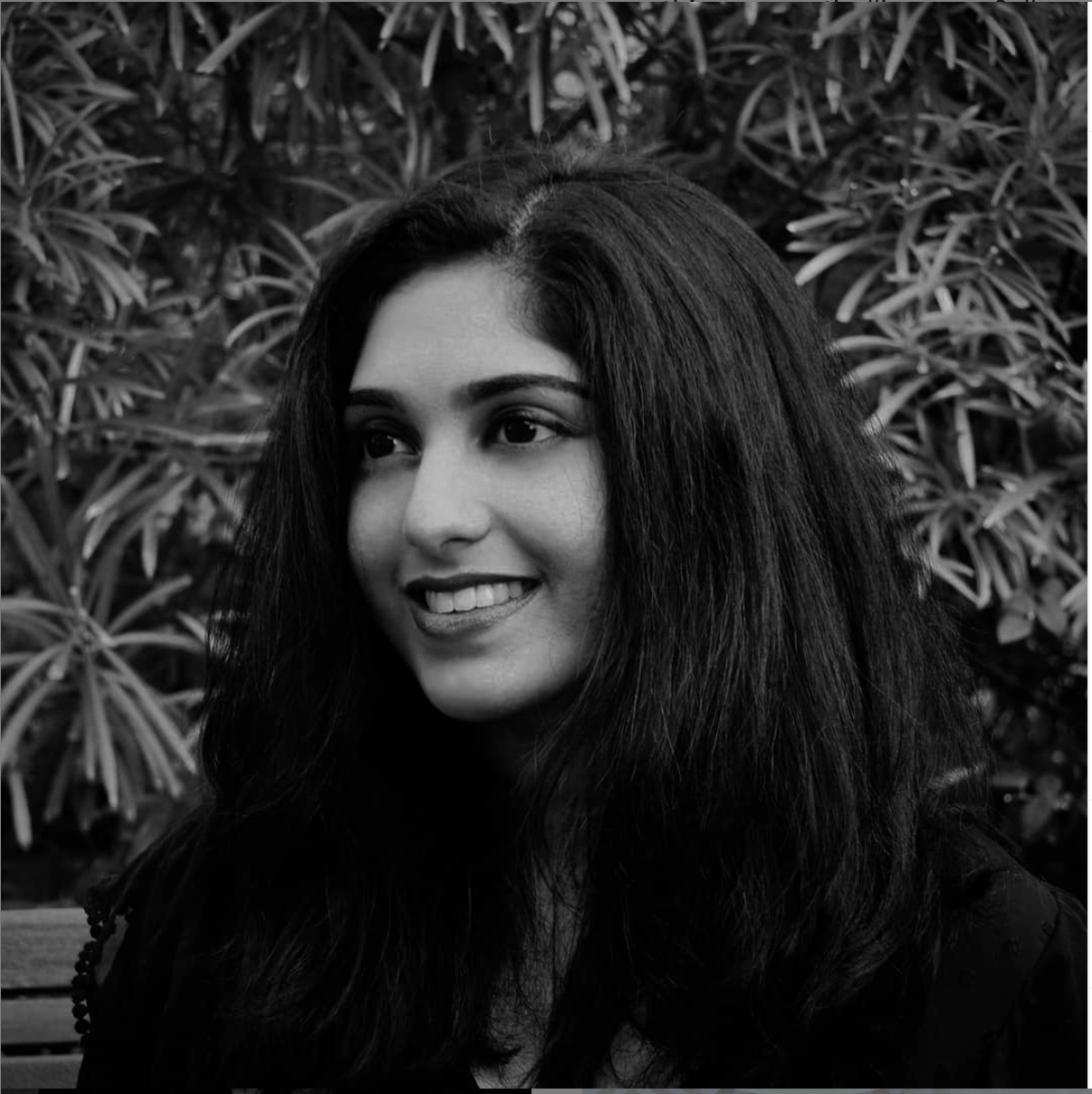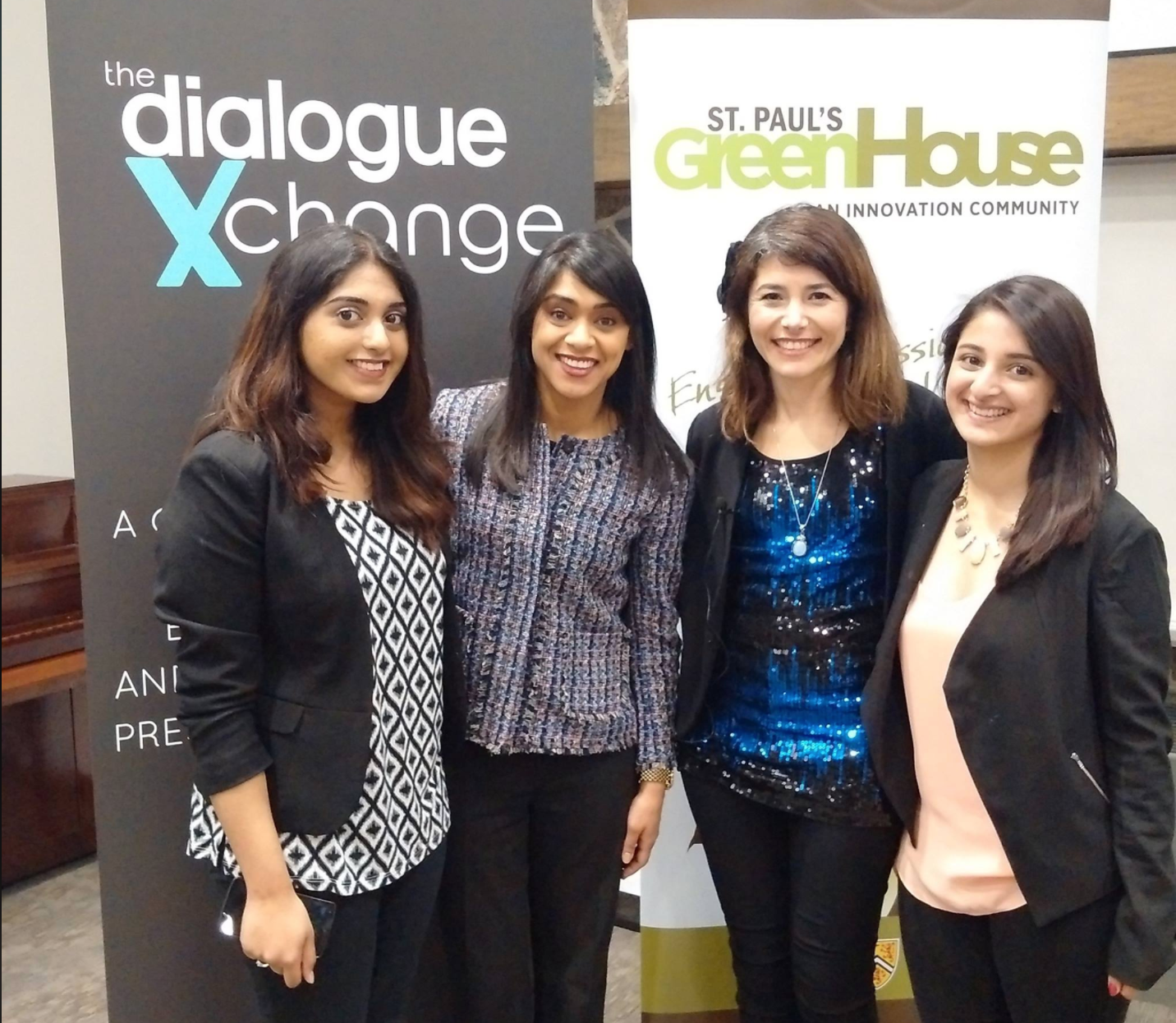
GreenHouse alumna Trishala Pillai (BA’16) is fuelled by work which enables her to create, promote and sustain prosperity for all. This is why she continues to serve on the social impact incubator’s advisory council, to provide incoming students with the same valuable experience she received during her time in the Innovators in Residence community. She also recently served as a judge for UWaterloo’s Pandemic Challenge.
While she didn’t get involved until her third year, she had made a strong connection with Tania Del Matto, director of GreenHouse in her first year, after watching Del Matto’s keynote on social innovation at a local conference.
“This was my first introduction to social innovation as a practice and framework,” said Pillai. “I left feeling very inspired and, in that moment, I realized doing good can take many forms. From then on, it was always in the back of my mind to get involved with GreenHouse in some capacity.”
As an international student from Dubai, Pillai prioritized getting settled into a new environment, country and school before jumping into something right away. By the time she got into her third year, she felt ready to join the community, using all her built-up energy and varied experience for social good. When she joined St. Paul’s for two terms, she brought a list of seven different problems she felt passionate about solving.
As she narrowed down her list, she started to work on her own social change project, the Dialogue Xchange. It was designed as a social movement to foster high-stake, crucial dialogue on topics that are not normalized. Growing up as an Indian in the Middle East and now living in Canada she was exposed to various cultures and she approached her project for social change from a global perspective. One example of dialogue focused on gender equity, bringing together voices from government, not-for-profits, private organizations and academia to discuss the state of gender equity in the Waterloo region. These varied perspectives were critical in fostering meaningful connections and sharing insights.

By the time she was ready to leave GreenHouse, she had built a strong network in the community and aimed to continue the venture with her co-founder and fellow GreenHouse alum, Pragya Dawadi (B. Math, ’18). But, as she started working full-time, she realized the venture would be too challenging to sustain.
Moving forward from the Dialogue Xchange, she felt better suited to influence change within a larger organization. She was drawn to the agile and innovative nature of technology companies and has spent the past five years making an impact at Canadian tech companies such as Shopify, Myplanet and most recently the Rumie Initiative.
“I realized that working inside a company, I could still do something meaningful for the community,” said Pillai. “By using the resources and people within an organization and forming the right partnerships you can amplify social change, and create a lot of collective impact in the world.”
Pillai was also recently recruited to be a judge for UWaterloo’s Pandemic Challenge Fund. By participating, students were given the opportunity to tackle the enormous challenges brought on by the COVID-19 pandemic. These solutions could be presented as potential policy changes, founding a startup or creating a social venture.
This unique competition united a variety of entrepreneurial units on the Waterloo campus, including GreenHouse, which contributed a $3,000 grant and continued mentorship to the venture with the most potential for social impact. Alongside other experts, Pillai judged 10, one-minute virtual pitches and determined which would be the most appropriate to move forward with GreenHouse, ultimately deciding on Decomp.
As an organic plastic waste disposal solution, Decomp, utilizes bioreactor technology to create and maintain the optimal growing conditions for plastic degrading microbes to facilitate the degradation of plastics
“I know Decomp will greatly benefit from working with the GreenHouse team,” said Pillai. “The experience allowed me to explore my interests, connect with bold leaders and learn a lot about myself. It taught me what kind of leader I want to be, how I want to innovate and how I want to contribute to society.”
While Pillai doesn’t regard herself as much of a planner, she is excited to craft a career around experiences she'll be proud to look back on. We can’t wait to see what she does next!